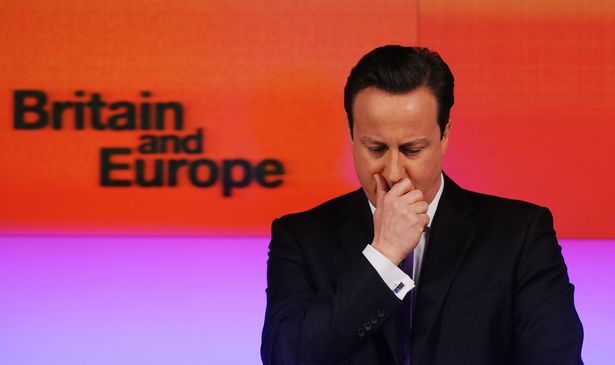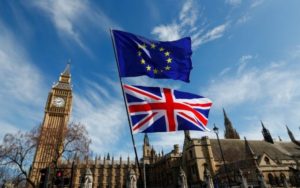London, 19 Ramadan 1437/24 June 2016 (MINA) – Voters have voted in favor of Brexit: British exit from the European Union. That means that in the coming months, British and European leaders will begin negotiating the terms of Britain’s departure.
Britain’s exit will affect the British economy, immigration policy, and lots more.
According to vox.com, it will take years for the full consequences to become clear. But here are some of the most important changes we can expect in the coming months.
The process of leaving the EU will take years
Also Read: Zohran Mamdani Affirms Full Support for Palestine and Zionist Boycott Movement
A Brexit vote is not legally binding, and there are a few ways it could theoretically be blocked or overturned. However, as the BBC notes, “it would be seen as political suicide to go against the will of the people as expressed in a referendum.”
Article 50 of the Treaty on European Union establishes the procedures for a member state to withdraw from the EU. It requires the member state to notify the EU of its withdrawal and obliges the EU to then try to negotiate a withdrawal agreement with that state.
A Brexit vote, however, does not represent that formal notification. That notification could take place within days — for example, when EU member countries meet for a summit that is scheduled for June 28 to 29. Or British officials might wait a few months to pull the trigger.
Once Britain invokes Article 50, it will have a two-year window in which to negotiate a new treaty to replace the terms of EU membership. Britain and EU leaders would have to hash out issues like trade tariffs, migration, and the regulation of everything from cars to agriculture.
Also Read: Macron Urges Joint France-UK Recognition of Palestinian State
In the best-case scenario, Britain may be able to negotiate access to the European market that isn’t that different from what it has now. Norway is not a member of the EU, but it has agreed to abide by a number of EU rules in exchange for favorable access to the European Common Market.
British Prime Minister David Cameron didn’t want to hold a vote on Brexit at all. But in 2014, he faced growing pressure from the populist right over immigration and Britain’s EU membership. To mollify dissenters in his own party and stop the rise of the far-right UK Independence Party, Cameron promised to hold a referendum on leaving the EU if his Conservative Party won the 2015 election.
The Conservatives surprised pollsters by winning an outright majority in Parliament, and Cameron kept his promise. But he wasn’t personally in favor of exiting the EU, and he campaigned vigorously for a “Remain” vote. At the same time, he allowed other members of his government to campaign on the other side. This created the spectacle of senior members of the UK government, from the same party, campaigning on opposite sides of one of the biggest issues in British politics in decades.
The victory of the “Leave” campaign could fatally weaken Cameron’s standing within his own party. Cameron had vowed to continue in office even if voters rejected his stance on EU membership. But that position may prove untenable. A revolt among Conservative members of Parliament could force him out of office. That could lead to a new Conservative government run by a more Euroskeptical prime minister, or it could lead to new elections.
Also Read: Prabowo and Lula da Silva Discuss UN Reform
Brexit will cause problems for Britain’s economy
In the short run, uncertainty about Britain’s future relationship with the EU, its largest trading partner, could push the UK into a recession. Market watchers predict an “explosion of volatility” on Friday morning as the markets process the implications of Britain’s exit.
Many economists expect both the British stock market and the pound to open lower on Friday morning. Britain’s chancellor of the exchequer, George Osborne, even hinted that he could suspend stock market trading if Britons voted to exit the EU.
In the long run, the situation could be worse. If Cameron’s government falls, Britain’s prospects of negotiating a favorable deal with the EU could be weakened.
Also Read: US Sanctions UN Expert Francesca Albanese Over Israel Criticism
The EU may decide to strike a hard bargain to discourage other countries from leaving the EU. Or the UK’s new leader might not be willing to accept the kind of restrictions that come with a Norway-style deal.
And that could create serious problems for businesses based in the UK.
“If you are Nissan or some other car producer with major production in the UK, today, the same safety standards and environmental standards allow you to sell everywhere in the European market,” Jacob Funk Kirkegaard, an economist at the Peterson Institute for International Economics, told me.
But if the UK leaves the EU, “you would no longer be able to sell into other European markets, not because you face a small tariff but because you’d have to go through another set of safety certifications. This kind of thing would be repeated in every industry you can think of.”
Also Read: Heat Wave Across Europe Causes 2,300 Deaths, Study Finds
Critics say the economic effects could be large. The UK government has estimated that exiting the EU could cause the British economy to be between 3.8 and 7.5 percent smaller by 2030 — depending on how well negotiations for access to the European market ultimately go. Other reports have found smaller but still significant impacts. (T/R07/R01)
Mi’raj Islamic News Agency (MINA)
Also Read: Top Economists Defend UN Gaza Report, Expose Global ‘Genocide Economy


































 Mina Indonesia
Mina Indonesia Mina Arabic
Mina Arabic